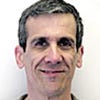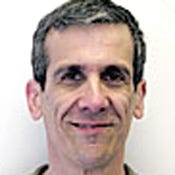Who Needs Cash?Who Needs Cash?
E-payment volumes are growing, and payment processors and banks race to keep up

Consumers in record numbers are ditching cash and checks in favor of debit and credit cards and automated payments. For the first time, debit- and credit-card payments surpassed cash and checks as payment methods for in-store purchases, according to a survey released last week by the American Bankers Association and Dove Consulting. And 60% of consumers now make automated bill payments, the survey says.
To keep up, payment processors and financial institutions are boosting their transaction platforms. Visa U.S.A. spent the last 10 months upgrading its VisaNet system to handle a peak rate of 5,200 transaction messages a second-nearly 19 million an hour-during this year's holiday season, up from 4,700 last year. The debit- and credit-card-transaction processor expects to hit this all-time high by Dec. 24. Visa processed 14 billion transactions, worth more than $1 trillion, in the 12 months ended March 30, the first time it has passed the $1 trillion mark in a 12-month period.
With 400 million debit and credit cards in circulation in the United States, Visa is one of the biggest users of specialized IBM mainframe technology for high-volume systems. IBM's Transaction Processing Facility is a real-time operating system and bundled server software that American Express, Citibank, and four major airline-reservation systems also use to handle high-volume transactions securely and with minimal downtime.
Visa balanced processing loads between its two U.S. data centers, enabling merchants to process customer payments faster. It also enhanced the system's ability to share data with member financial institutions, reducing dispute-resolution time from days to hours and cutting chargebacks, says Rick Knight, senior VP of global operations at Inovant, Visa's processing subsidiary. Pattern-recognition capabilities were added, as well, to spot transactions likely to be fraudulent, Knight says.
With debit and credit cards accounting for 52% of in-store transactions versus 47% for cash and checks, according to the ABA and Dove Consulting survey, Visa's efforts couldn't be more timely. Debit cards alone account for 31% of in-store transactions, exceeding credit cards (21%) and checks (15%) and nearly equal to cash payments.
Other payment processors also are working to stay ahead of escalating transaction volumes. MasterCard International has finished a five-year, $160 million upgrade of its Banknet transaction system. As part of the upgrade, MasterCard replaced dedicated lines with a VPN, cutting costs and response times to authorize credit transactions. It switched to leasing lines from AT&T on an as-needed basis, giving the payment processor more flexibility to adjust to changes in transaction volumes, says Mike Manchisi, senior VP of computer and network operations at MasterCard. The enhanced system could let the company offer rebates in real time, giving customers incentives to use MasterCard member banks' cards.
Banknet is a peer-to-peer network that includes IBM workstations at 670 sites worldwide. It can handle peak loads that reach 18 million transaction messages an hour or 5,000 a second. The system can scale to 100 million transaction messages an hour, Manchisi says, though he doesn't anticipate approaching that level.
Banks, too, are dealing with increased demand for E-payments. Consumer use of services such as direct payroll deposits and phone and Internet bill payments is at an all-time high. Forty-one percent made bill payments online, compared with 26% two years ago, according to ABA and Dove Consulting.
Business customers also prefer more automated-payment services. Though checks remain the method of choice for recurring bill payments, businesses increasingly want their banks to convert these paper payments to electronic transactions. Nearly 60 million such conversions were processed in the third quarter, almost twice the number processed in the previous quarter, according to the Electronic Payments Association.
Wells Fargo, a leader in automated payments, late last month processed its billionth transaction this year, an all-time high in a single year. The bank, which has $394 billion in assets, is upgrading its homegrown automated payments-processing system, which was developed by Norwest Bank, a large Midwestern bank that merged with Wells Fargo five years ago. The upgrade to the mainframe system, which uses IBM's DB2 database, is planned for early next year and will include better backup and recovery and improved load balancing among the bank's data centers around the country.
The system can process up to 6 million transactions an hour. "We anticipated the explosion in automated payments and made sure the system has enough capacity," says Keith Theisen, senior VP of electronic payments products at Wells Fargo. The bank gets a fee for every transaction, so the more volume it brings in, the better its economic outlook.
It's not just megatransaction numbers that matter. Next year, IBM expects several of its Transaction Processing Facility customers, including Visa, to test a 64-bit version of the system that will replace a mainframe-programming environment with open-source tools. The release, due in late 2005, will be able to address practically unlimited amounts of memory, compared with the current version's 2-Gbyte capability. Customers will be able to program apps for TPF using Linux-based development tools and the GNU Compiler Collection. That could let companies write code more quickly. "And it's cheaper to port open-source code to a TPF system than write new code," says Stu Waldron, an IBM senior technical staff member.
That could be important to payments processors and banks as they race to keep up with rising transaction volumes. For Visa, MasterCard, and many banks, the end of the holiday season also means the beginning of planning for the next one. "Every year, we build capacity at 10% to 15% higher than the projected peak," Visa's Knight says, "then we try to break it." --with Aaron Ricadela
About the Author
You May Also Like






